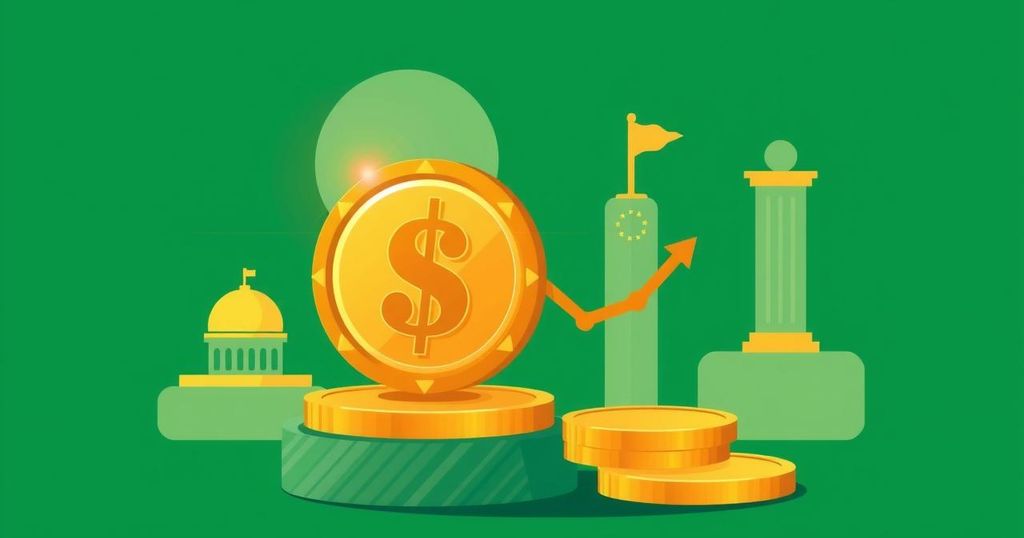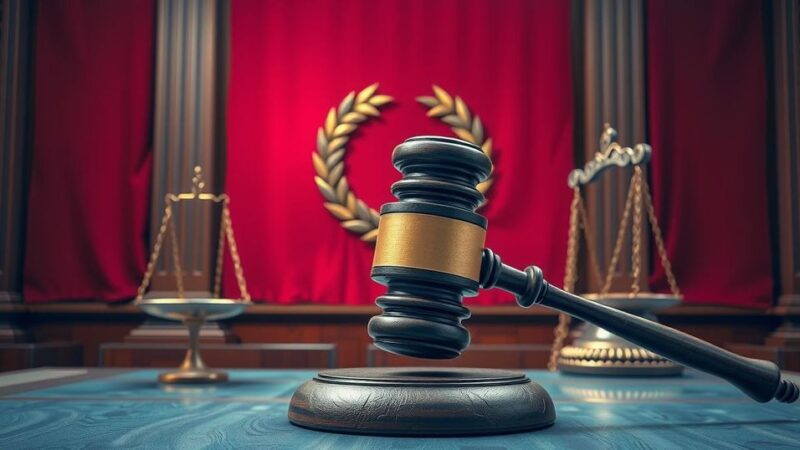Ecuador’s President Daniel Noboa reaffirms the US dollar as the country’s only official currency through Executive Decree No. 565. The decree comes amid election tensions as Noboa prepares for a runoff against leftist candidate Luisa González. He advocates for a constitutional reform to solidify dollarization, responding to opposition proposals for alternatives. Critics view the decree as politically motivated and unnecessary, highlighting the existing legal framework for dollarization.
In response to growing tensions surrounding the upcoming presidential election, Ecuador’s President Daniel Noboa has issued Executive Decree No. 565, which reaffirms the US dollar as the sole official currency of the nation. The decree, officially published on March 18, states that the United States dollar is the exclusive means of payment in Ecuador, as reported by El Universo.
As part of his administration’s strategy, Noboa has urged his National Democratic Alliance (ADN) party to advocate for a constitutional reform to Article 303. This proposed reform would assign monetary policy solely to the Executive Branch via the Central Bank, thereby fortifying dollarization against alternative currency proposals.
In an interview, Noboa articulated that the decree is designed to “strengthen dollarization” amidst opposition proposals advocating for alternatives such as an Ecuadorian dollar or electronic currency. He specifically criticized the political movements of exiled former president Rafael Correa, whose supporters have raised concerns about the current monetary regime.
The decree comes in the context of an impending presidential runoff scheduled for April 13, featuring Noboa and leftist candidate Luisa González, a protégée of Rafael Correa. Some analysts suspect González’s political strategy may challenge the existing dollarized system, prompting Noboa to reinforce his stance.
The proposed constitutional reform would dictate that all financial transactions in Ecuador be conducted in US dollars. It would also specifically prevent the Central Bank from issuing any alternative currencies and from granting financial assistance to public sector entities that diverges from the dollar standard.
This decree follows critical remarks made by leftist assemblywoman Paola Cabezas, who has suggested an “Ecuadorian style” of dollarization, which Noboa vehemently opposes. Meanwhile, González has distanced herself from her party’s controversial rhetoric, asserting that their plan does not involve abandoning the dollar.
Critics, such as Mateo Villalba, a former manager of Ecuador’s central bank, have argued that the decree serves a political agenda and is unnecessary, as dollarization is already legally established. Villalba posited that Noboa’s actions are aimed at garnering political support ahead of the pivotal election.
Ecuador has utilized the US dollar as its official currency since 2000, following a crippling financial crisis characterized by hyperinflation and bank failures. The dollarization strategy has reportedly provided economic stability despite enduring significant external shocks, such as fluctuations in oil prices and worldwide financial downturns.
In conclusion, President Daniel Noboa’s issuance of Executive Decree No. 565 reaffirms the US dollar as Ecuador’s official currency amidst rising electoral tensions. The proposed constitutional reforms and strong statements against alternative monetary systems signal Noboa’s commitment to maintaining economic stability as he faces leftist opposition in the presidential runoff. Critics have raised concerns regarding the political motivations behind this decree, suggesting it may be a strategic move to bolster support ahead of the election, especially as Ecuador navigates the complexities introduced by past economic crises.
Original Source: www.intellinews.com






